On 28 April, the lights went out in Spain and Portugal. How did cybersecurity event Cyber Intelligence Europe deal with the disruption?
In one the biggest energy outages ever seen in Europe, Spain lost 60% of its power. Traffic lights went out, elevators stopped mid-journey and airports fell into chaos.
“In my more than 40 years in this sector, I have never seen anything like this,” said Jorge Fabra, former president of Red Eléctrica, operator of Spain’s national grid.
To understand how the events industry was affected, we spoke to the organiser of Cyber Intelligence Europe, an exhibition and conference scheduled to start in Madrid on 29 April.
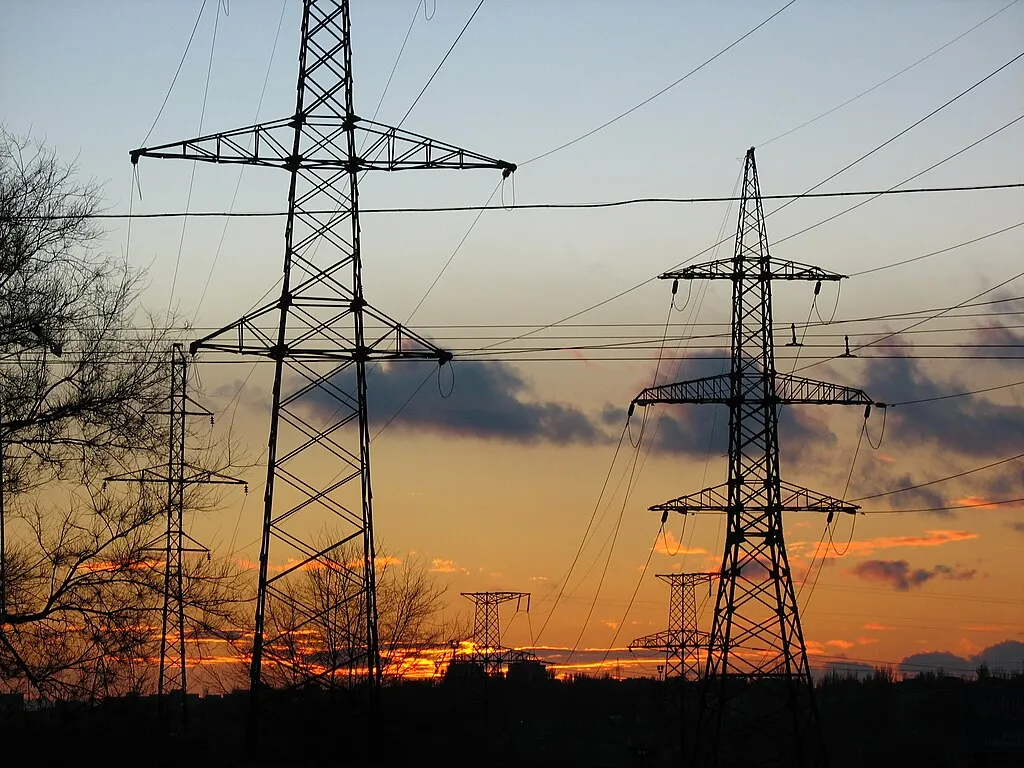
Cyber Intelligence Europe is organised by Intelligence-Sec, a UK-based security events organiser. It convenes government officials, military personnel and industry experts to discuss European cybersecurity policies.
The event ran for two days. Most participants arrived on 28 April in the thick of the crisis. Organisers were faced with an unprecedented scenario – cars navigating roads without traffic lights, metro stations closed and a mass of people on the streets seeking answers.
Here’s what Martyn Hill, co-founder and portfolio director of Intelligence-Sec had to say about the experience.
Photos were taken by Martyn.

Martyn Hill, co-founder of Intelligence-Sec
EN – Was Cyber Intelligence Europe 2025 affected by the power outages on 28-29 April?
MH – Yes, our Cyber Intelligence Europe conference and exhibition was slightly affected by the power outage on 28 April 2025.
Many, if not all, of our participants arrived in Madrid on 28 April. Some of them, myself included, arrived at the event hotel in Madrid before the power outage hit at 12.30pm. Others arrived at Madrid International Airport believing everything was fine. They were in the air when the power outage hit, so were unaware of any issues until they left the airport terminal and realised that they couldn’t order an Uber and didn’t have any signal on their mobile devices.
Many of our participants informed me that the queue for a taxi was over five hours long and that only cash payments were accepted.
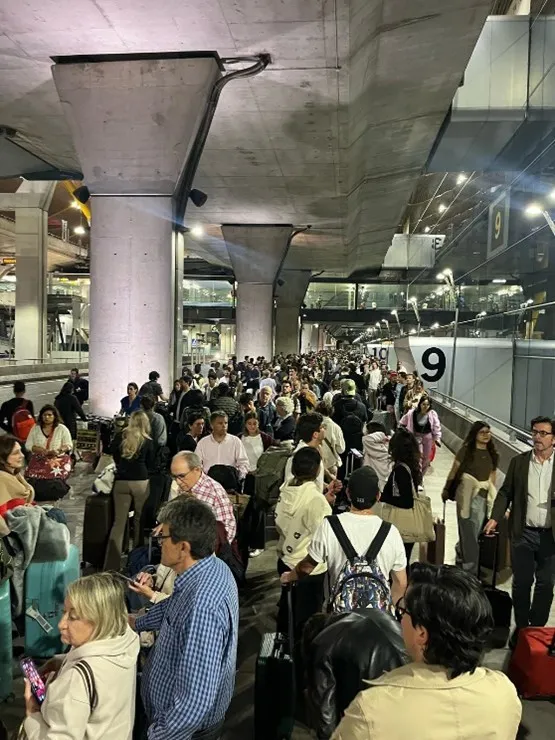
Five hour taxi queue at Madrid International Airport
EN – How did the blackout impact the event? Could you give us a brief timeline, up until the issue was resolved?
MH – Here’s the timeline.
11:30 – I arrive in Madrid without any issues.
12:20 – I check into the event hotel without any issues.
12:30 – Power outage hits Madrid.
13:00 – I go to the hotel reception where there’s a huge queue. Staff inform everyone that power will be back soon. The whole neighbourhood has been affected.
13:15 – I speak with the hotel event coordinator who informs me that I cannot access the meeting rooms until the power outage is over as the key cards will not work to open the doors. The coordinator advises me to take a stroll into Madrid and come back later when hopefully power will be restored – which I do.
17:00 – I arrive back at the hotel and see some of the participants in the hotel bar. Many of these participants arrived in the morning so their flights had been ok.
17:30 – I briefly speak with the hotel event team to find a solution if we have no power.
21:00 – Hotel staff inform guests that they cannot provide wake up calls as the phone system is still down. They also advise guests to sleep with curtains open as many guests had limited battery left on their phones – myself included.
22:30 – I wake up as all my bedroom lights came on and power is back up and running.
EN – How did you deal with the power outage? Did you have a system in place to deal with it, or was it a case of responding in the moment?
MH – It was more about responding in the moment. Many of our participants, speakers, sponsors had no way of communicating with me.
Thankfully, we had a plan in place if there was no power for the event where we would ask each speaker to present their PowerPoint slides directly from their own laptops on a high table/cocktail table and we would change the layout of the room to allow all participants to see the laptop screen.
The meeting rooms we had booked had natural light so darkness would not have been an issue and with the hotel doors not opening to the rooms there was an outside entrance participants could use. With this in mind, we could have made it work. It would have been challenging but it was a case of thinking on your feet and dealing with issues that arose then and there.
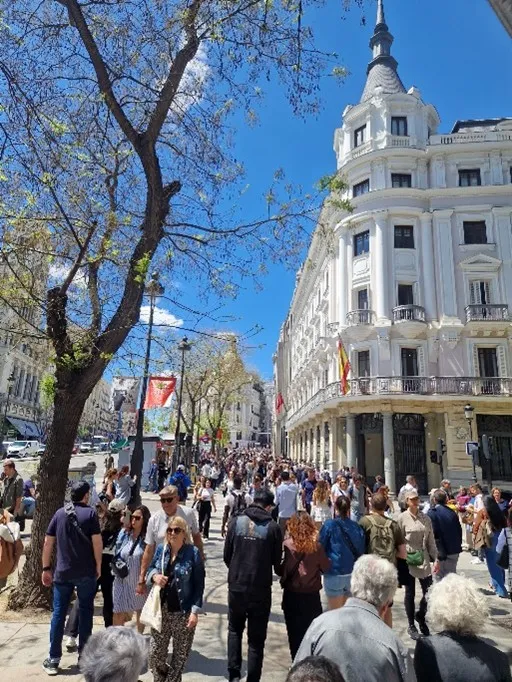
Masses of people walking the street during the power outage
EN – In terms of how attendees, sponsors and exhibitors reacted – it must have been quite chaotic. How did you handle communications?
MH – This was the hardest issue. No one could contact me and I could not contact them. I always say no news is good news, so I was hoping that all the participants would be going ahead as planned as they had not heard anything from me.
When the power came back on in the evening my phone started pinging away with missed calls, emails, WhatsApp messages from speakers, sponsors and attendees. Two speakers had their flights cancelled so I responded to them that evening saying can they do their presentations remotely as we have power at the hotel and both agreed to this.
Some participants messaged to say there was a five-hour queue at the airport for taxis and others just messaged to say they were in Madrid and wanted to know if the event was going ahead as planned. I decided to message everyone who had tried to contact me late that evening (28 April) and informed them all that the event is going ahead as planned and if they were an exhibitor they can set up before the event started at 08:30.
EN – Will you now be reconsidering the host destination of Spain, or perhaps southwestern Europe in general, as a result of this?
MH – Not at all. The hotel staff were excellent and stayed so calm and we came up with an alternative solution if power was not restored. On the evening of the 28 April many people were at the hotel as it was advised not to head out due to the darkness and no streetlights. The hotel were handing out nuts, crisps and other snacks and they also managed to provide a limited dinner service for everyone as well.
The people of Madrid were also extremely good. No one seemed panicked. In the city centre, the tourist board were handing out free paper maps for tourists. Ice cream shop owners were handing out free ice creams to children and anyone who wanted one.
Many people were looking for an ATM machine. Only two were working in the city centre – they were hard to find. I asked a few people where they were and local civilians were helping to direct me and others to the ATM machine. When I finally found it, there was an hour-long queue to get cash out.
A few of our participants were advised to take the free shuttle bus that the government put on for people arriving in Madrid. However, it only did one stop which was to Sol – the city centre of Madrid. The event hotel was about one hour’s walk from Sol.
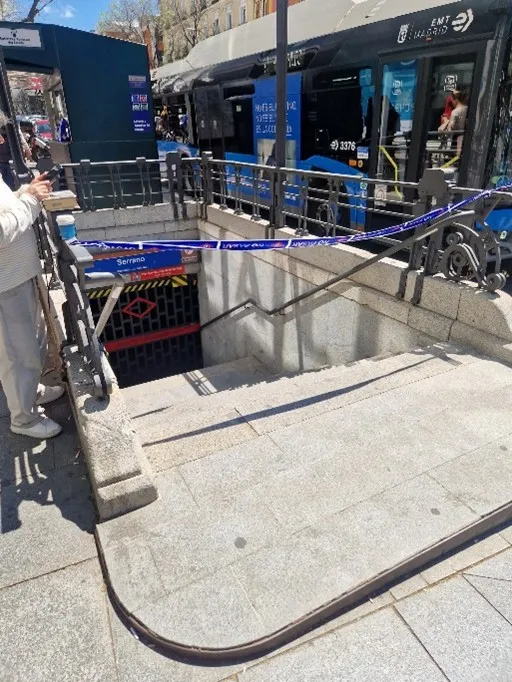
Metro stations all shut due to power outage
One of our participants told me that she was completely lost and it was getting dark so two young students walked with her to the hotel. It is because of these kind acts that I’m not put off hosting future events in southwestern Europe.
EN – What else will this event change about how your plan your events in the future?
MH – It is hard to say what I would have done differently for planning our events in the future. This was such a strange situation that everyone just had to adapt to.
“I had to deal with the volcanic ash cloud that came over Europe in May 2010”
I think being able to think on your feet in the moment and trying to stay calm and logical is the lesson. It is stressful when things like this happen but I have had to deal with the Covid pandemic when all our events got postponed. Then, I had to deal with the volcanic ash cloud that came over Europe in May 2010. I was hosting an event in Paris and only UK, Belgium and French participants could attend as everyone else had their flight cancelled.
EN – Overall, how did these blackouts impact the event?
MH – Overall, we had a couple of speakers who had to do their presentation remotely and a couple of attendees did not attend as they were unsure if the event was taking place. Apart from this everyone was there in Madrid and we hosted a good two-day conference and exhibition.
I think the resilience of our participants was a huge factor in the success of the event taking place. From queuing at a taxi rank for five hours, or walking two hours direct from the airport to the hotel, or getting the shuttle bus into the city centre then walking in the dark for an hour to the hotel – they were really impressive.
Communication was tough as I mentioned earlier. It was a case of “as soon as I can respond to people I will”, even if that was around 11pm at night.
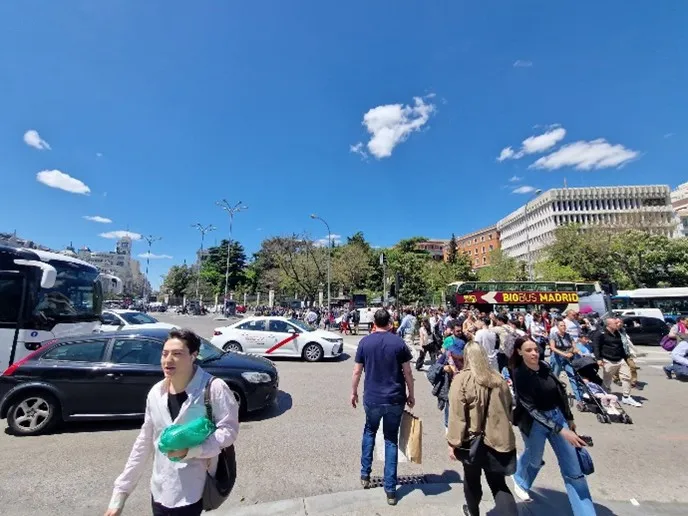
Pedestrians and vehicles having to avoid each other as traffic lights were not working
EN – Did any impromptu discussions crop up about topics like energy reliability?
MH – Yes, they did.
Many of the speakers discussed the importance of how governments need to find alternative communication strategies when blackouts like this happen. With no internet, telecommunications or media outlets operating there was no way to inform citizens or tourists of what was happening.
Many officials speaking said the main lessons learnt from this is how do we communicate the situation to our citizens to make sure there is no mass panic etc.
However, I have to say, being in Madrid with the millions of people walking on the pavements – there was no mass panic. The local citizens were extremely helpful. Shopkeepers were also friendly and helping people with directions, handing out free food and water for people.
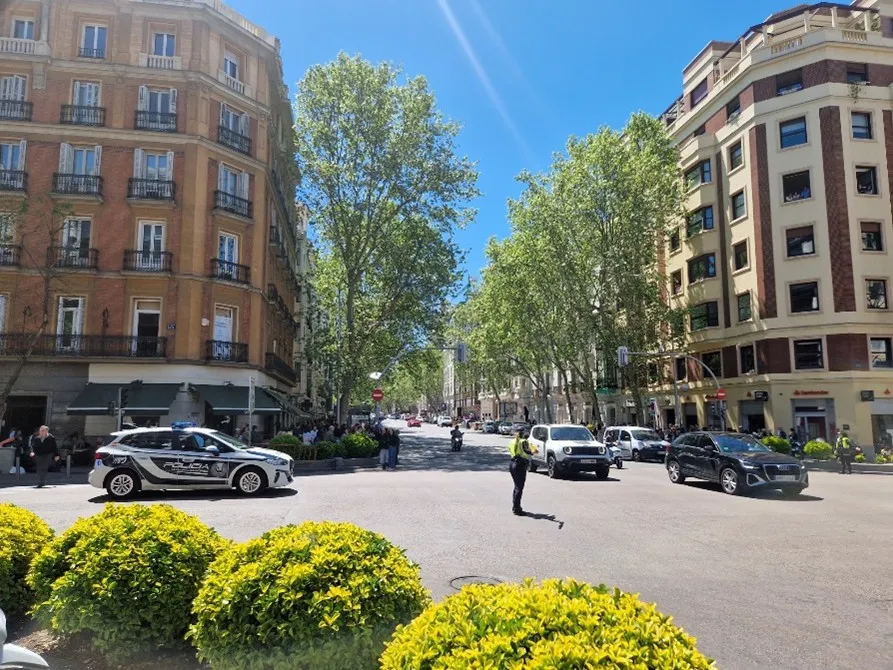
Police officers were controlling traffic at all major intersections
EN – Is there anything you’ve learned from the experience? Or anything you’d have done differently in hindsight?
MH – I think looking back I probably should have somehow gotten a message back to my team in the UK. Ideally I would have asked them to send out an official email outlining our plans in case there was no power, informing participants that the event will go ahead one way or another.
However, my phone signal was dropping in and out. My team in the UK had no way of reaching me and they were just as much in the dark as I was on the situation.
You just can’t prepare for situations like this. You have to adapt there and then on the ground. Luckily for me, our participants showed a strong willingness to make it to the hotel and participate in the event.
We are thankful that they showed up, and that they were appreciative of us not cancelling the event. Considering the lengths they all went through to get themselves to the hotel in Madrid, it was a relief that the event was still on.

The post On 28 April, Spain had a blackout. Here’s how one event survived it appeared first on Exhibition News | The trade for shows..

